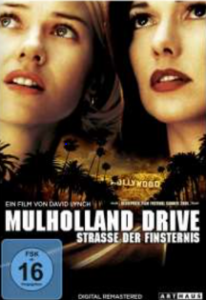 Have you ever felt like not watching movies for a while just because you saw one that’s so damn good you knew watching anything else after it would just disappoint you? This is the spell that Mulholland Drive has cast on me.
Have you ever felt like not watching movies for a while just because you saw one that’s so damn good you knew watching anything else after it would just disappoint you? This is the spell that Mulholland Drive has cast on me.
David Lynch’s 2001 movie was chosen by a BBC poll as the best of the 21st century, yet for me, it’s more than that. For me, it’s the definition of art. Maybe that makes me too much of a New Formalist, but I do believe that what counts in a work of art is not the ‘what’ but the ‘how’. Lynch takes what could simply be a lesbian love story and explores its other dimensions – jealousy, toxicity, rivalry, and betrayal – while at the same time intertwining it with a Hollywood dream. Though this is fascinating, it’s not what sets it apart. What ‘does’ set it apart is how Lynch tells this story in the form of an unnerving, haunting, surrealistic, Freudian mystery/thriller.
Even if you’re not a Formalist, what stays with you after watching Mulholland Drive is not its story, but an experience, a feeling.
https://www.youtube.com/watch?v=uHQnb3HS4hc
After a while, you’ve experienced the eeriest, seemingly-most-unconnected scenes, and you are increasingly irritated at how you cannot make sense of anything at all. As things get more and more alienating, they begin to make sense, and as they do, they get more maddening than ever. You start to really get what Freud meant by “unheimlich.” The film never stops overwhelming you or destroying all boundaries of reality, nightmares, hallucinations, past, present, and future. The present, though, is the most intangible of all. As Lynch explains, “many times during the day, we plan for the future, and many times in the day we think of the past. … There is some kind of present, but the present is the most elusive, because it’s going real fast.”
Mulholland Drive, if all else forsaken, is outstanding in its depiction of a troubled dream world. As bizarre as the scenes seem, they make perfect sense when you consider how dream logic/illogic works and how dreams reflect our denial, revelation, fears, and desires. The movie portrays this aspect in so many precise details that we can perfectly relate and say “exaaactly, this is exactly what dreams are like, especially if you have eaten too much or have a fever” – a stranger you saw at a restaurant randomly appears in your house; someone who looks like your colleague appears to be your brother; you forget to wear pants to work and notice it too late; and the coffee you spilled the other day reappears and ruins everything. About the film’s atmosphere, David Lynch once said in an interview,
the weird thing about inner knowing is that it’s really hard to communicate that to someone else. As soon as you try, you realize that you don’t have the words, or the ability to say that inner knowing to your friend. But you still know it! It’s really frustrating. I think you can’t communicate it because the knowing is too beautifully abstract. And yet poets can catch an abstraction in words and give you a feeling that you can’t get any other way.
If that is so, then he’s a poet indeed, so artfully capturing and conveying the most abysmal, untouchable, and intricate of human experiences. Naturally enough, he refrains from explaining his movies, believing the experience to be different from viewer to viewer. So I would say no more, either. Experience Mulholland Drive and let it work its dark magic.
https://www.youtube.com/watch?v=jbZJ487oJlY
8,906 Total Views, 7 Views Today






